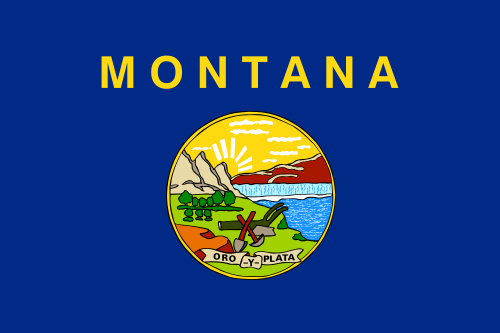Dear MSSA Friends,
People are asking me if MSSA has endorsed any candidates for the 2024 election cycle. The answer is, no – not yet.
I wanted to take this opportunity to explain the process MSSA goes through to evaluate, grade, and endorse candidates.
First, there are no candidates yet. Just talk. The Montana Secretary of State doesn’t even begin accepting candidate filings until the first of January, 2024. Until a candidate actually files with the SoS, it’s just talk.
Then, the candidate filing window doesn’t close until the first week of March. Many candidates will wait to file until the last day, perhaps for tactical reasons. So, we won’t know for sure who all the candidates are until the candidate filing window is closed. Heck, Charlton Heston could get resurrected and file to run for some Montana office on the last day for filing. We’d sure want to include him in our evaluation of candidates.
Ultimately, MSSA will depend mostly for candidate evaluation on voting records and returned MSSA Candidate Questionnaires. For any candidate, that information may be seasoned with other info known or learned about the candidate. As you might guess, some candidates may be less than entirely honest in answering questions on the MSSA Candidate Questionnaire. Therefore, we give more value to voting records, when available, than to questionnaires.
About voting records, MSSA collects and compiles votes on all issues we track during the legislative session. This is an immense volume of data to manage. Suppose there are 20 votes we track and score before the 150-member Legislature. That’s 3,000 bits of data. But, it’s never that simple. There may be 18 tracked votes before the 50-member Senate, and 25 tracked votes before the 100-member House. Nevertheless, we do collect all this info, put it into a spreadsheet, assign numerical values to yes and no votes for each bill, total all of that, and are then able to calculate a percentage of good votes for each legislator.
About MSSA’s Candidate Questionnaire, we do this differently than some other gun groups. They often ask see-lightning, hear-thunder type questions of candidates, such as would the candidate vote for a bill to ban private firearm ownership. That is a useless and meaningless question in Montana where that bill will never be introduced.
MSSA uses a different strategy. At our Annual Meeting in the first of March, MSSA will determine our legislative agenda for the following legislative session. Then, our candidate questionnaire will be based on those issues we plan to have before the Legislature in the following session. This kills several birds with one stone. It generates real world information for us to use to evaluate candidates. It exposes candidates to our proposed legislation while they still have more than a 30-second attention span. And, it begins to line up legislative support for our bills well before the legislative session.
By the end of the first week in March, MSSA will distribute its candidate questionnaire to all filed candidates. We will announce a hard deadline for return of our questionnaire for any candidate who has a challenger for the June Primary Election. For those candidates with no Primary contest, we offer more time to complete and return our questionnaire.
Scoring the returned questionnaires is another significant data management task. There are usually about 20 questions on our questionnaire and each question has one of five possible answers. We usually distribute our questionnaire to about 400 candidates. That makes for a LOT of potential data to collect and collate. This data also goes into a spreadsheet and is given numerical values.
Again, the project is somewhat more complicated than described. Issues of concern won’t be identical for candidates for Congress, Governor, Attorney General, Legislature, and others. So different questionnaires appropriate to the office must be crafted and delivered to candidates.
Once all the information is in hand and compiled, only then can MSSA make decisions about and offer grades and endorsements for candidates who have a Primary Election contest in the June Primary. We try to get these published and out by early April. Then, MSSA will do another round of grades and endorsements before the November, General Election. We try to release these by late August or early September. For both Primary and General, candidates are anxious for MSSA to get grades and endorsements out as early as possible, so favored candidates can publicize their endorsements.
There are some races MSSA doesn’t cover because the office has little impact on the RKBA. Examples are State Auditor and the Public Service Commission. There are other races MSSA doesn’t subject to this process because we simply don’t have the bandwidth to cover them, such as local government races for county commission and city council. Because it is an important office for the RKBA, MSSA has begun to look at races for County Sheriff.
So, that’s the successful process MSSA has used for about four decades. And, that’s why MSSA has no position, yet, on any races for the 2024 election cycle.
Best wishes,
—
Gary Marbut, President
Montana Shooting Sports Association
Author, Gun Laws of Montana

